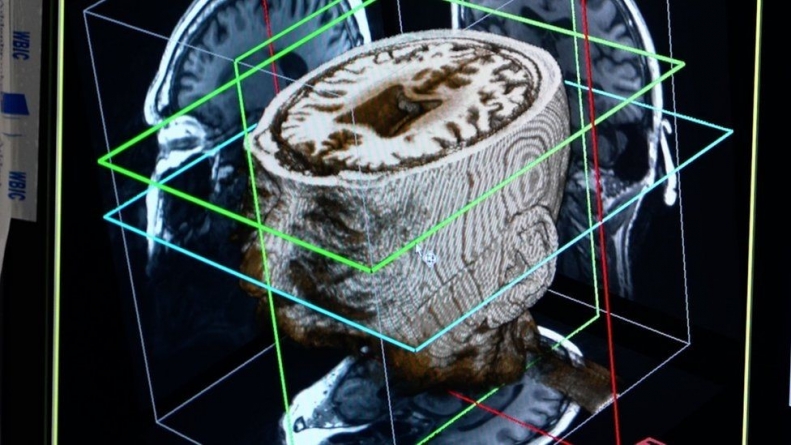-
LONDON: Indian-Origin Teen In UK Gets “Life-Changing” Cancer Treatment - April 25, 2024
-
SILICON VALLEY: All About Pavan Davuluri, New Head Of Microsoft Windows - April 25, 2024
-
LONDON: UK’s India Gate To Commemorate Role Of Indian Soldiers From World Wars - April 24, 2024
-
HARARE: Shri Bramha Kumar appointed as the next Ambassador of India to the Republic of Zimbabwe - April 23, 2024
-
LONDON: Indian-Origin Principal Wins UK Legal Challenge Over School Prayer Ban - April 23, 2024
-
TORONTO: Indian-Origin Doctor Needs ₹ 2 Crore For Legal Fees. Elon Musk Responds - April 22, 2024
-
KINSHASA: India-Democratic Republic of Congo Foreign Office Consultations - April 21, 2024
-
LONDON: UK Court Allows Sale Of Nirav Modi’s Luxury London Apartment - April 21, 2024
-
TEHRAN: Travel advisory for Iran and Israel - April 20, 2024
-
LUXEMBOURG: Shri Saurabh Kumar concurrently accredited as the next Ambassador of India to the Grand Duchy of Luxembourg - April 20, 2024
BRUSSELS: Artificial Intelligence may diagnose dementia in a day
BRUSSELS: Scientists are testing an
artificial-intelligence system thought to be capable of diagnosing dementia
after a single brain scan.
It may
also be able to predict whether the condition will remain stable for many
years, slowly deteriorate or need immediate treatment.
Currently,
it can take several scans and tests to diagnose dementia.
The
researchers involved say earlier diagnoses with their system could greatly
improve patient outcomes.
Identify patterns
“If
we intervene early, the treatments can kick in early and slow down the
progression of the disease and at the same time avoid more damage,” Prof
Zoe Kourtzi, of Cambridge University and a fellow of national centre for AI and
data science The Alan Turing Institute, said.
“And
it’s likely that symptoms occur much later in life or may never occur.”
Prof
Kourtzi’s system compares brain scans of those worried they might have dementia
with those of thousands of dementia patients and their relevant medical records.
The
algorithm can identify patterns in the scans even expert neurologists cannot
see and match them to patient outcomes in its database.
Memory clinics
In
pre-clinical tests, it has been able to diagnose dementia, years before
symptoms develop, even when there is no obvious signs of damage on the brain
scan.
The
trial, at Addenbrooke’s Hospital and other memory clinics around the country,
will test whether it works in a clinical setting, alongside conventional ways
of diagnosing dementia.
In the
first year, about 500 patients are expected to participate.
Their
results will go to their doctors, who can, if necessary, advise on the course
of treatment.
Consultant
neurologist Dr Tim Rittman, who is leading the study, with neuroscientists at
Cambridge University, called the artificial-intelligence system a
“fantastic development”.
“These
set of diseases are really devastating for people,” he said.
“So
when I am delivering this information to a patient, anything I can do to be
more confident about the diagnosis, to give them more information about the
likely progression of the disease to help them plan their lives is a great
thing to be able to do.”
Sometimes struggling
Among the
first to participate in the trial, Denis Clark, 75, retired from his job as an
executive for a meat company five years ago.
Last
year, his wife, Penelope, noticed he was sometimes struggling with his memory.
And they
are now concerned he is developing dementia.
Denis
tries to describe his symptoms but Penelope interjects to say he finds it hard
to explain what is happening.
The
couple are worried about having to sell their home to fund Denis’s care.
So
Penelope is relieved they should not have to wait long for a diagnosis and an
indication of how any dementia is likely to progress.
“We
could then plan financially,” she said.
“We
would know whether as a couple we could have a few holidays before things get
so bad that I can’t take Denis on holiday.”
Mental problems
Another
of Dr Rittman’s patients, Mark Thompson, 57, who began having memory lapses 10
months ago, before the trial of the artificial-intelligence system began, said
it would have made a big difference to him had it been available.
“I
had test after test after test and at least four scans before I was diagnosed,”
he said.
“The
medical team was marvellous and did everything they could to get to the bottom
of what was wrong with me.
“But
the uncertainty was causing me more… mental problems than any caused by the
condition.
“Was
it a tumour? Would they need to operate? It caused me so much stress not
knowing what was wrong with me.”























